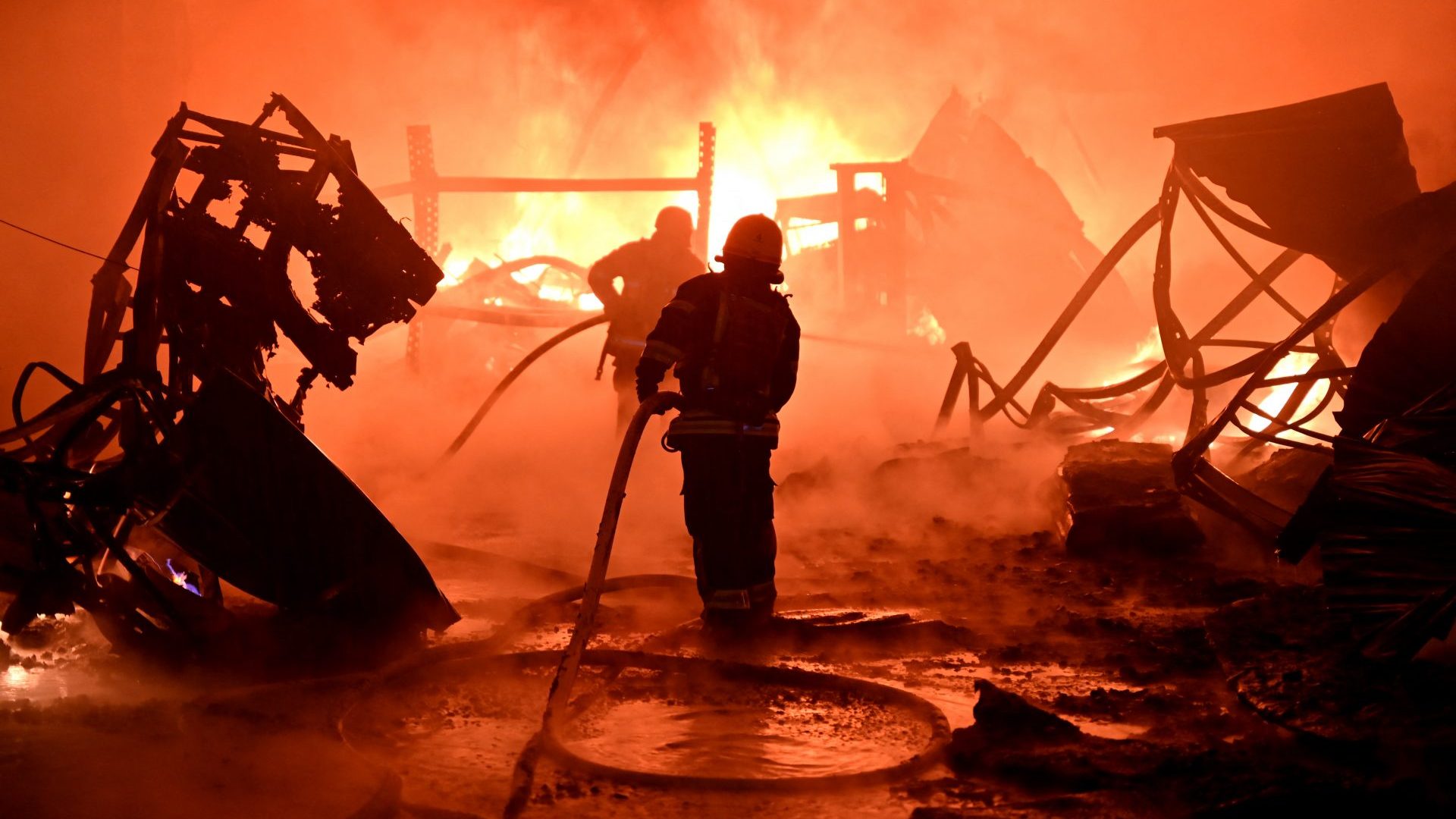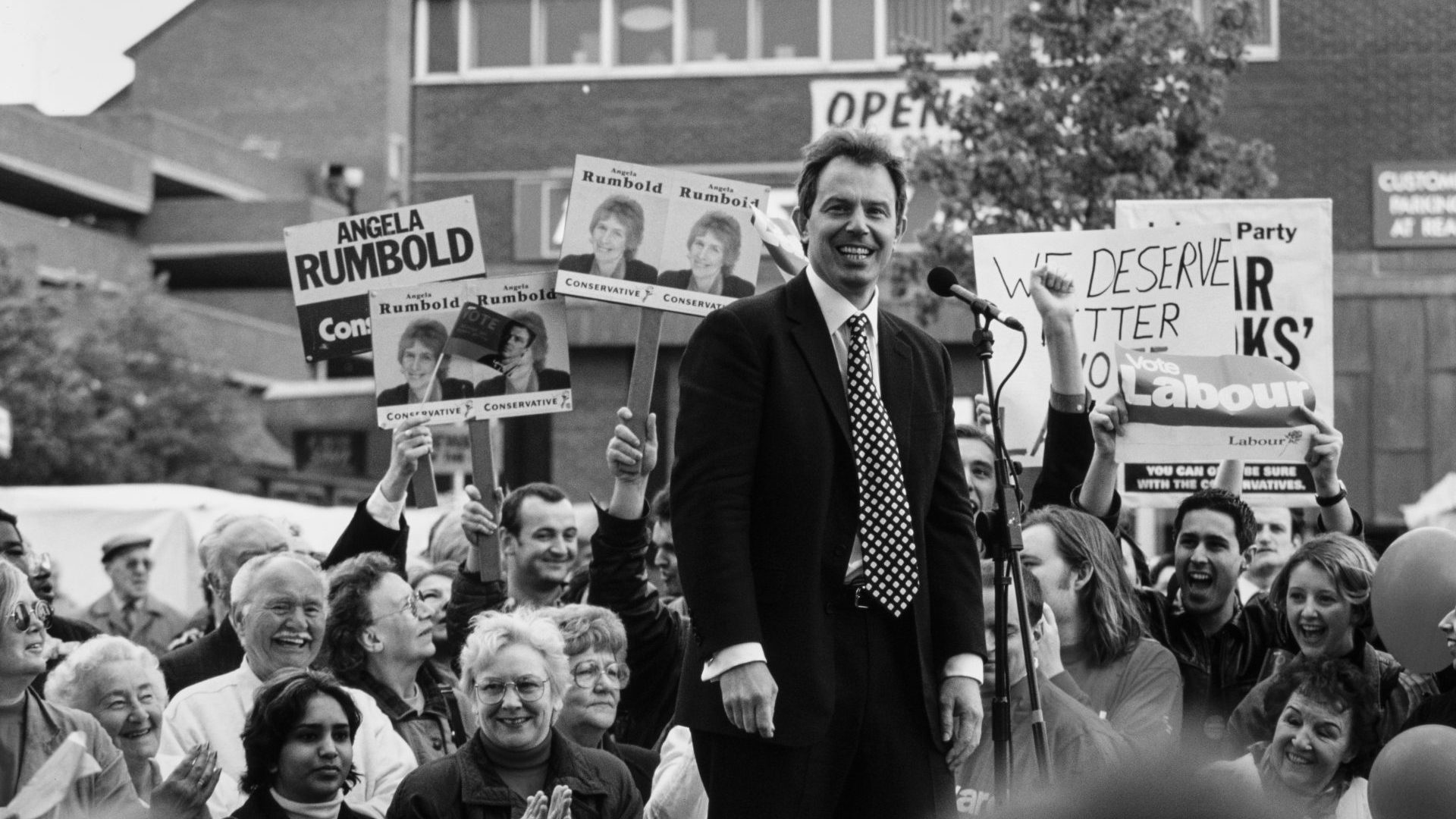Antony Blinken’s impromptu rendition of Rockin’ In The Free World, knocked out on a cherry red guitar in a Kyiv basement, went down badly with my friends in Ukraine. It looked tasteless while people were dying in the new Russian onslaught against Kharkiv.
But I would endure any number of excruciating vocals from American politicians if it means the Biden administration suddenly finds a strategy in the region.
Blinken arrived in Kyiv confident that the $60bn US arms package, held up for months by Congress Trumpists, is finally starting to arrive. The problem is, neither the USA nor – to be frank – the Ukrainian government currently has what analysts call a “theory of victory”. It is focused, for now, on survival.
Russia has doubled defence spending to 6% of its GDP; it is getting ammo from North Korea, drones from Iran and a flood of raw materials and supplies from China. It has reshuffled its wartime leadership, putting the economist Andrei Belousov in charge of the defence ministry with a remit to win the war through economic power.
Vladimir Putin has ramped up his hybrid warfare efforts against the west, with his disinformation warriors in overdrive as elections loom across the USA, Britain and the EU, and a spate of unexplained fires at western arms-making factories. For good measure he has ramped up the nuclear rhetoric: staging sudden nuclear warfare exercises, and issuing a warning that Russia might attack UK military bases if British weapons are used against Russian targets.
So the legitimate question, given that the west is sinking money and political capital into Ukraine, is: what is the most positive, feasible outcome? And what must change to make it happen?
First, let’s understand that, for Ukraine, things are about to get worse. Ever since Kharkiv resisted the first onslaught, in spring 2022, Russia has been trying to strangle the city, turning it into a ghost town, unable to rebuild because of missile attacks, and now menaced by a new land invasion, less than 30km to its north.
To lose a regional capital, a major industrial centre with 1.4 million inhabitants, would be a catastrophe. It would trigger a humanitarian crisis and hand Russia significant industrial resources. So Ukraine’s army is forced to deplete the forces holding back Russia’s slow and costly advances to the south in order to blunt the attack.
But even if Kharkiv is a diversion, analysts expect Russia’s main attack of 2024 to be unleashed within weeks.
Though Ukraine is on the defensive on land, in the Black Sea, and in its war of drone strikes against Russia’s oil industry, it is doing better. It has forced the Russian navy back into its own territorial waters, and has repeatedly sunk Russian warships. As a result, Russia’s ability to threaten Ukraine’s grain supply to the global south is diminished.
But the strategic picture is clear: Russia’s combined actions, through its “meatgrinder” assaults, its missile strikes, its proxies in the Middle East and its political stooges in the US Congress, have put the west on the defensive. Russia sets the pace, chooses the locus of conflict and can decide when to cut its losses and refocus elsewhere. This, in turn, ups the pressure on Kyiv to accept a peace that would involve permanently ceding Crimea and the Donbas.
Western electorates growing weary of this war should be in no doubt. If this formula is shown to work against Ukraine, it will be used against us.
That’s what the appointment of Belousov is about: he is an advocate of economic centralisation and state direction. His instruction to Russian defence firms to innovate faster than Ukraine and its allies signify that Russia is preparing for a future confrontation with Nato, once it has fought Ukraine to a standstill.
Menacing a Nato ally while in possession of large tracts of Ukrainian land, production capacity and rare minerals would significantly strengthen Russia’s hand, even before you consider the moral power of having already humiliated the USA.
The west has options – both to prevent further loss of Ukrainian territory and to enable Russia’s defeat, but they would require a step-change in political willpower. One is the deployment of European gendarme units and advisers into Ukraine, to guard the currently uncontested border with Belarus and free up Ukrainian troops for combat. Another is the imposition of a no-fly zone in western Ukraine, using US and European-supplied air defence assets.
Both would bring immediate threats of direct retaliation, and so far neither Blinken, Emmanuel Macron nor David Cameron has been prepared to commit to them – though Macron has opened the debate by saying boots on the ground are possible.
Further options might include a regulatory crackdown on Russia’s “dark fleet” of oil tankers, which – being unregistered and uninsured – cannot pass through the Suez Canal and must use the Strait of Gibraltar. A concerted maritime policing action, using the laws of the sea, could impound or halt these ships and seriously degrade Russia’s ability to export oil. In addition to sanctions, there could also be sanctions on the sanctions-busters, which would include, above all, China.
I am in no doubt that these measures are under consideration. What’s needed is the willingness to face down Putin’s endless nuclear bluffing and move from reactivity to pro-activity. I do not think we will get there this side of the big upcoming elections. But after that, those who want to see Ukraine win, and not be destroyed, have a right to ask our politicians to get serious.




